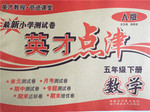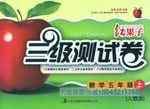题目内容
18.Would you please help me to take the clothes downstairs,Tom?_______________.( )
| A. | Never mind | B. | That's right | C. | No problem | D. | Let's go |
分析 --汤姆,你能不能帮我吧衣服拿到楼下?
--没问题.
解答 答案是C.
本题考查情景交际; A.(用于安慰)没关系,不用担心; B.对了.C.没问题; D.我们走吧.根据语境,说话人同意帮忙,故选C.
点评 情景交际要关注从逻辑和常识两方面综合理解语境;在平时学习的过程中要注重积累习惯表达和一些常用的俚语.

练习册系列答案
 英才点津系列答案
英才点津系列答案 红果子三级测试卷系列答案
红果子三级测试卷系列答案
相关题目
10.If you cheat in the exam,you could hardly it.( )
| A. | throw away | B. | get away | C. | get rid of | D. | get away with |